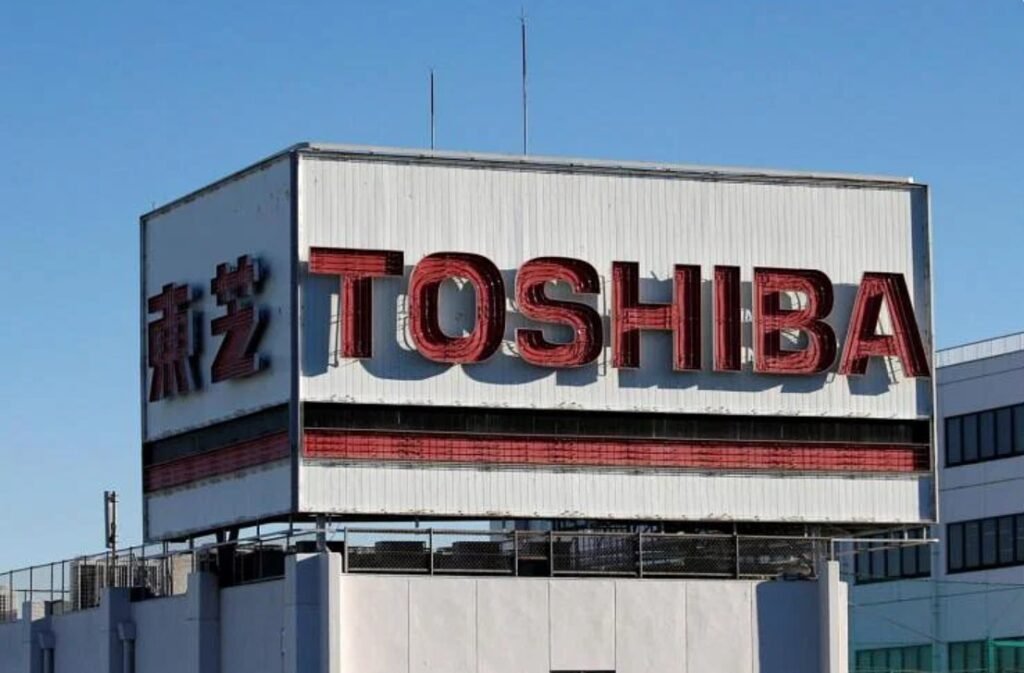Toshiba, one of Japan’s most iconic and influential companies, has ended its long history of being listed on the Tokyo stock exchange, following a series of scandals, losses and takeovers. The company, which was founded in 1875 and became a global leader in electronics, nuclear power and infrastructure, delisted from the Tokyo bourse on Monday, after 74 years of trading. The move marks a dramatic fall from grace for a company that once symbolized Japan’s economic prowess and technological innovation.
Toshiba decided to delist after it agreed to a $20 billion buyout offer from a consortium led by CVC Capital Partners, a private equity firm, in November. The deal, which was approved by Toshiba’s shareholders earlier this month, was seen as a way to end the turmoil and uncertainty that had plagued the company for years.

Toshiba had faced a series of challenges, including an accounting scandal in 2015 that revealed it had overstated its profits by $1.3 billion over seven years, a massive write-down of its US nuclear unit Westinghouse in 2017 that pushed it to the brink of bankruptcy, and a failed attempt to sell its memory chip business to a group led by Bain Capital in 2018.
The company also faced pressure from activist shareholders, who demanded more transparency, accountability and governance reforms. In March, Toshiba’s board ousted its chief executive, Nobuaki Kurumatani, amid allegations that he had colluded with CVC to engineer a management buyout. In June, an independent investigation found that Toshiba had colluded with the Japanese government to undermine the interests of its shareholders at a crucial meeting in 2020.
What are the implications of Toshiba’s delisting?
Toshiba’s delisting has raised concerns about the future of the company and its employees, as well as the impact on Japan’s economy and innovation.
Some analysts have warned that Toshiba could lose its competitive edge and its ability to invest in research and development, as it becomes more dependent on its private equity owners, who may seek to cut costs, sell assets and extract dividends. Toshiba employs about 125,000 people worldwide, and has operations in various sectors, including energy, infrastructure, industrial systems, healthcare and semiconductors.
Others have argued that Toshiba’s delisting could be an opportunity for the company to reinvent itself and focus on its core businesses, without the pressure and scrutiny of the public market. Toshiba has said that it plans to use the proceeds from the deal to strengthen its balance sheet, enhance its growth strategy and improve its corporate culture.
Toshiba’s delisting also reflects the broader challenges facing Japan’s corporate sector, which has struggled to adapt to the changing global environment and compete with rivals from China, South Korea and the US. Toshiba was once a pioneer in fields such as laptops, flash memory and nuclear power, but it failed to keep up with the pace of innovation and the shift to digital and renewable technologies.
Toshiba’s delisting also highlights the growing influence of foreign investors and private equity firms in Japan, which have increased their presence and activism in recent years, seeking to unlock value and improve governance in the country’s underperforming companies. While some welcome this trend as a catalyst for change and reform, others fear that it could undermine Japan’s long-term interests and social values.
How has the market reacted to Toshiba’s delisting?
Toshiba’s delisting has been met with mixed reactions from the market and the public. Some investors have welcomed the deal, as it offered a premium of about 40% to Toshiba’s share price before the offer was announced. Others have criticized the deal, as it undervalued Toshiba’s assets and potential, and deprived them of the opportunity to benefit from the company’s recovery and growth.
Toshiba’s share price rose by 18% on its last day of trading on Monday, closing at 4,895 yen ($43.6). The company’s market value stood at about $18 billion, down from its peak of $36 billion in 2007. Toshiba’s delisting also reduced the number of companies in the Nikkei 225 index, Japan’s benchmark stock index, from 225 to 224.
Toshiba’s delisting has also sparked nostalgia and sadness among many Japanese people, who have grown up with the company’s products and services, and who regard it as a national icon and a source of pride. Toshiba’s name, which means “eastern electric” in Japanese, is a reminder of the company’s origins and its role in Japan’s post-war reconstruction and industrialization. Toshiba’s slogan, “Leading Innovation”, is a testament to the company’s legacy and ambition.
